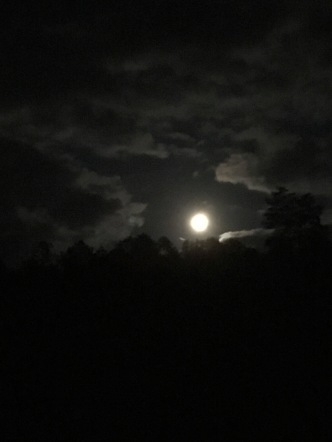
The year 2020 doesn’t seem particularly apocalyptic on its surface, but I doubt that many of us who survive it will remember it as one of our best. I was already having first-in-my-lifetime health problems when “the lockdown” slammed certain medical doors in my face… so that hasn’t gone well; and none of us who has children can be very happy about trillions of bucks more being added to the debt which they will all inherit from us. Yet somehow we must blunder on.
One of my preferred escapes is baseball—which isn’t being played this year, thanks to the Wuhan Black Death; but then, I’m less a spectator than an excavator. I research long-lost ways of hitting and throwing a ball, and I try to distill something that may help boys of smaller stature find a means of winning a place on the team. I’m convinced that boys, especially, need a sense of physical achievement to develop a healthy outlook. Call it “toxic masculinity”, if you wish; but far more toxic, to my mind, is self-defeating surrender to unopposed obstacles. Which of us wants our son to grow into a living exemplar of that feminist construct: the unmotivated, irresponsible, adolescent, forever excuse-tendering couch-vegetable?
I’m in the process of trying to upload a second edition of a hitting manual based upon “Deadball days “ (c. 1900-1920), although the designers of Amazon’s software apparently do not conceive of anyone’s ever producing a second edition and are scarcely easing my task’s fulfillment. I won’t even name the book here: publicity is not my aim. I will, however, reproduce the final paragraph, unique to this latest edition:
The best of luck to you! Play hard, play smart… and play fair. No one who cheats will ever pile up enough lucre to buy self-respect, nor will he ever be able to counterfeit it from all the cheers he’s suckered from his adoring fan club. Playing this game, ultimately, is about winning respect for yourself as someone who did all he could with what he was given. Believe me, not many people ever get that trophy!
I’ll return to the sentiments contained in those few words. Bear with me now as I shift to a different scene. Most of us have wiled away a few minutes in lockdown by sitting through some fare on the idiot box that we ordinarily wouldn’t tolerate. My wife and I tentatively explored Roku (never a very inviting experience before, since HughesNet can’t vanquish the tendency of shows to “buffer” for minutes at a time)… and we eventually settled on a British comedy (as it was teased) titled Doc Martin. The serial seems to have run a full decade across the pond. How bad could it be?
The narrative pretext is that a brilliant London surgeon, having discovered that he can no longer stare into people’s bleeding viscera without panic attacks, retreats to a vacation spot called Portwen off the Cornish coast. Absurdly overqualified to treat runny noses and soothe upset tummies, he nonetheless longs to settle his nerves in peace and poverty. Surprises await him, though… and this story, you know, has been told a thousand times, so my wife and I presumed that we knew what was in store for us as viewers. The old Andy Griffith Show that our parents watched must have devoted dozens of episodes to “flatland touristers” who go half-crazy when they discover the hidden complexities of small-town life in Mayberry. Portwen would surely be something in the same genre, with Doc Martin (who hates both ends of his popular rechristening) forced to abandon his big-city assumptions and navigate the quirks of colorful local characters.
Well… yes and no. We laughed through three and a half episodes—kind of—until we agreed that our laughs were uncomfortable and wrongly timed. The trouble, as we saw it, was that Doc Martin wasn’t the bookish, introverted, urbanized boy-wonder having to make adjustments to the human race, such as was clearly intended of his character. No: the problem was that, for all his abrupt and stodgy ways, the doc was actually more sensible, civil, and mature than the nasty little islanders into whose midst he had plunged himself. Locals ran him off the narrow, winding roads with a shrug, as if he didn’t know how to drive, and never reduced speed, moved over, or peered back to see what wreckage they had caused. Lazy, incompetent workmen destroyed his property yet received his frowns with indignation. Gossips and malingerers flooded his waiting room to gorge on tea and “biscuits” (cookies, we call them), then bristled when he shooed them out. A need-burdened, impertinent teenaged receptionist (she certainly acted teenaged, anyway) virtually hired herself and wouldn’t do any part of her job efficiently; yet when her runaway sloppiness almost cost a life and stirred the Doc to dismiss her (for a day or two), the incensed townspeople immediately boycotted their one medical professional as if he’d been caught setting cats on fire.
These pastoral Arcadians, in a few words, were arrogant, self-important, indolent, “entitled” (in their minds), undependable, unaccomplished, unconscientious, intrusive, cliquish, clannish, and often downright boorish. None of the Old School mannerliness that one expects to find out in the boondocks was detectable in them; no Old School reluctance to embrace city life in the moral fast lane restrained them. In fact, the snapping point for me (when buffering just wouldn’t come often enough) was midway through Episode Four, when it became apparent that everybody on the island would potentially copulate with anybody else and that the good doctor, thanks to all his hang-ups, was some kind of “nun” (pronounced to rhyme with “noon”). His wizened—but less than wise—auntie, intended to be a kind of Sibyl on his Other World Journey, iced a sleazy country cake by offering a few details of her extra-marital affair and sneering at her nephew’s prissy Puritanism. I was reminded of many a grad-school confrontation in Austin during my own youthful transit through the corridors of Hell.
And that’s the point, really, I guess: Austin or Berkeley of the Eighties is now picturesque rural Europe of the twenty-first century. The God-is-dead, guaranteed-minimum-income dystopia of simmering socialism has now softened the spines and brains of every yokel in the pot. Everyone has rights, rights upon rights. Everyone is constantly offended if he or she isn’t accorded special favors while doing nothing that might appear energetic or exceptional. “Everyone belongs to everyone,” in the phrase piped through the cradles of Huxley’s Brave New World. With what dismay would that extraordinarily clairvoyant prophet have viewed an “entertainment” in which his countrymen can’t perceive the grim irony of “everyone being everyone’s”, but instead milk idiot laughter from the isolation of a single resisting individualist!
I need hardly observe to anyone who labors through my paragraphs that this reformed ethos now belongs to our shores, as well. What was His Excellency Judge Eric Moye telling Shelley Luther in a Dallas courtroom other than that “everyone belongs to everyone” and that her individual concern for feeding her children was obscene?
The irony here—one fully worthy of Huxley’s pen—is that Ms. Luther showed us a rare display of “manly fortitude” as a tinpot dictator nanny-wagged his finger at her and sent her into time-out. It’s no accident, I think, that the fictional Portwen abounds in outspoken, aggressive, sarcastic female characters and invertebrate, whiny, directionless males. The Brave New World we have fashioned for ourselves is an effeminate one—a place where competency is insensitive, where honesty is rude, where independence is anti-social, and where objective logic is “mansplaining”. Doc Martin embodies all of these despicable male attributes… and, of course, he must be brought to his knees to beg forgiveness of the communal idol, the mute stone Moloch of conformity. Just like Shelley Luther, who apparently possesses more courage than the typical American man within the age of discretion, he must confess publicly that he has been “selfish”.
Meanwhile, the rest of us shoot and post selfies of our now de-individualized faces wearing their communally supportive masks (the best of which are seldom more than half effective against microbes, by the way—and then only if they are discarded and replaced after each outing). We are somehow saving lives… my life, your life, our own lives and other lives… if we do so, while we are no better than perpetrators of manslaughter if we refuse. And we know this because… because it is repeated endlessly around us, in Huxleyan fashion. We know that when medical opinion argues otherwise, it isn’t real science, because it’s rude: it doesn’t put the collective front and center. All science must begin in the promotion of the collective, because… because people like Judge Moye (and Xi Jinping, and Mao Tse-tung, and Joseph Stalin) tell us so.
God help our boys! Was there ever a time when a fella needed more courage of conviction, more dedication to objectives outside himself but not defined by the herd? In a small but not insignificant way, a boy might learn such courage by turning his natural liabilities into assets—his short stature into productivity, for instance. That’s why, in my leisure, I love to imagine some passed-over kid at batting practice elbowing the big guys aside and saying, “Watch me shoot line drives through infield! You’ll strike out twice a game and homer once, maybe. I’ll be on base for you all afternoon!”
Was there ever a moment when the block cast aside by the builder was more essential as a cornerstone? God created every little thing and every person to reach up to Him in some special way—to flower in that manner darkly caricatured by Darwinian evolution, but much more accurately portrayed as resistance against the Domination of the Bully. There is no greater bully than the herd, nor any more loathsome crystallization of herd will than those individual bullies who appoint themselves herd-interpreters. Our mission in this world is to prevail over the great Downward Pull, a vector that perversely becomes “progress” in the grubby, squalid scramble to survive. The florition of the unique, the surpassment of mere physical parameters through a burst of inspired intelligence—of spirit: this is why we are alive.
And this is what the dark force among us has always sought to throttle. This is why he or she who will not bend a knee to the collectivist’s design has always become a scapegoat. It’s why Mayberry and Portwen become Deadworld without new generations of boys who play hard, and play fair. May God have mercy on the throngs of us who allow ourselves to be led like sheep! We may be assured of this: He will have no mercy at all on those who lead the children to destruction.







